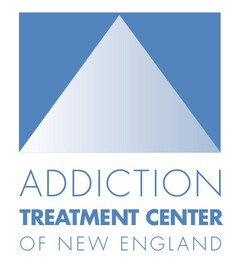Browsing the Trip of Cleansing in the Comprehensive Addiction Treatment Program
Getting started on the path of detoxification within the structure of an extensive dependency treatment program is an essential stage in the trip in the direction of recuperation. The procedure of cleansing holds a significant role in breaking the physical dependence on compounds and preparing the person for the subsequent stages of treatment. Navigating with cleansing is not merely an issue of physical cleaning; it requires a complex interplay of emotional, psychological, and social variables that call for cautious consideration and support. As individuals grapple with the challenges of withdrawal signs and the unpredictabilities that exist ahead, having a robust assistance and a structured plan system in position comes to be paramount. In this conversation, we will discover the multifaceted elements of detoxing within the comprehensive dependency treatment program and lost light on the crucial elements that form this transformative trip towards recuperation.
Importance of Detoxing in Healing

Detoxification sets the structure for the remainder of the addiction therapy program by preparing the individual for more treatment and counseling. By cleansing the body of substances that have actually been clouding judgment and influencing habits, detoxification allows clients to approach their healing with a more clear mind and stronger focus.
In addition, cleansing assists in taking care of the potentially extreme withdrawal signs that may arise when drug or alcohol use is quit. Physician closely monitor patients during detox to ensure their safety and security and provide necessary support. Via this procedure, individuals can start their journey in the direction of sobriety with a maintained physical and mental state, increasing the likelihood of an effective recuperation.
Understanding the Detox Process
Detoxification, a basic element of addiction treatment programs, includes an organized process focused on securely getting rid of dangerous materials from the body to assist in an effective healing journey. The detoxification process generally starts with an evaluation to examine the person's compound use background, physical health, and mental well-being. This examination assists healthcare experts figure out one of the most proper detoxification strategy tailored to the individual's demands.
During detoxification, the body experiences withdrawal as it readjusts to the lack of the compound. Withdrawal symptoms vary depending upon the kind of compound used, the period of use, and private aspects. Medical supervision during detoxification is vital to handle withdrawal signs and symptoms and make sure the individual's safety and comfort.

Handling Withdrawal Signs And Symptoms

Medications may be made use of to alleviate particular withdrawal signs and symptoms and lower discomfort. For instance, medications like methadone or buprenorphine can aid manage opioid withdrawal symptoms, while benzodiazepines may be used for alcohol withdrawal. It is essential for medical care providers to carefully monitor the individual's feedback to these drugs to guarantee their safety and security and performance.
In enhancement to medicinal treatments, supportive treatments such as counseling, peer assistance teams, and alternative techniques like mindfulness reflection or yoga exercise can aid individuals cope with the emotional and emotional challenges of withdrawal. By resolving withdrawal signs and symptoms thoroughly, medical care suppliers can improve the cleansing experience and support individuals on their trip to healing.

Support Solutions Throughout Detoxification
Assistance systems play an essential duty in providing social and emotional aid to people going through detoxification in dependency therapy programs. Throughout the detoxification procedure, individuals commonly experience a series of physical and mental withdrawal signs and symptoms, making this stage tough - Addiction Treatment Center. Having a solid support system Check This Out in place can dramatically impact the individual's ability to browse via detoxification efficiently
Support teams supply a platform for individuals to link with others who are going with comparable experiences, offering a sense of neighborhood and shared understanding. Health care specialists, consisting of specialists, doctors, and counselors, play a critical official website duty in checking the person's progression, giving clinical support, and offering assistance throughout the detox process.
Looking Ahead: Life After Detox
Having successfully finished the cleansing stage, people in dependency therapy programs now concentrate on preparing for the obstacles and possibilities that exist in advance in their trip in the direction of healing. Life after detoxification marks an important transition period where people have to remain to build on the progression made throughout detoxification to preserve their sobriety. It is necessary for people to acknowledge that the trip towards recovery is recurring and calls for commitment, dedication, and a willingness to welcome change.
One key element of life after detox is the growth of coping systems to manage triggers and food cravings that may occur. This may involve finding out brand-new skills, such as mindfulness methods, cognitive-behavioral strategies, and stress monitoring methods, to navigate tough scenarios without resorting to material usage. Additionally, people are motivated to proactively involve in ongoing therapy, support system, and aftercare programs to reinforce their support network and obtain support as they navigate the complexities of life post-detox.
Final Thought
In final thought, detoxification is a vital element of the comprehensive addiction treatment program. Recognizing the detoxification procedure and handling withdrawal symptoms are necessary actions in the direction of healing. Support systems play a significant role throughout this tough trip. Addiction Treatment Center. Looking in advance, life after detox holds promise for a much healthier, substance-free future. It is very important to acknowledge the importance of detoxification in the procedure of overcoming dependency and moving in the direction of a life of soberness.
Medical supervision throughout detox is critical to take care of withdrawal signs and symptoms and guarantee the person's security and convenience.
By recognizing the detoxification procedure and its importance in damaging the cycle of addiction, individuals can begin on a path in the direction of lasting recuperation.
During the detoxification procedure, people often experience a variety of mental and physical withdrawal signs and symptoms, making this stage tough. Health care experts, including check that specialists, counselors, and doctors, play a critical role in keeping track of the person's progression, offering clinical support, and offering support throughout the detoxification process.
Life after detox notes an essential change duration where individuals have to continue to construct on the progress made during detox to maintain their soberness.